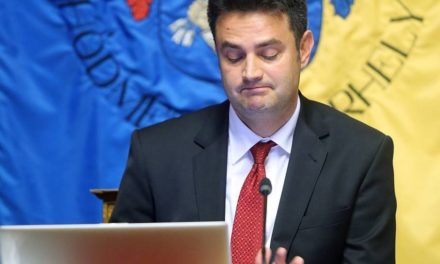The American RAND Corporation published a study in January 2023 Avoinding a long war . This study essentially supports Hungary's position regarding the war in Ukraine, based on the American national interest.
As is well known, the RAND Corporation is close to the Pentagon, its strategic research institute, and although the RAND Corporation and related persons - reflecting the ideologies that divide the American political elite - represent different views, the current study still deserves attention because, on the one hand, it is the last one related to the war on the other hand, he makes his recommendations considering almost all the controversial issues related to Ukraine.
The study refers to 78 literatures, these include, in addition to the previous materials of the RAND Corporation, in the two journals of the Council on Foreign Relations, Foreign Policy and Foreign Affairs, then in the Washington Post and the New York Times and other papers. article. In terms of theoretical issues, the study mainly takes into account the works of Cornell and Princeton universities. Among the news agencies, AP News and Reuters, and CNN among the television stations are included in the list of literature used. In other words, these forums are the ones, and roughly in this order, that most influence the Western world's perception of war.
The study can essentially be divided into two parts, the first part considers alternatives to the possible course of the war from the point of view of American interests, and the second part considers America's possible means to influence the war in accordance with its own interests.
As for the course of the war, the study examines the possibilities in five different dimensions: (1) the chance of the deployment of nuclear weapons on the Russian side; (2) the likelihood of the war turning into a Russia-NATO clash; (3) Territorial division of Ukraine; (4) the duration of the war and (5) the manner in which the war ended.
As an introduction, he emphasizes that American interests often coincide with Ukrainian interests, but they are not the same, and that the American government has a duty to its citizens to represent American interests.
When deploying nuclear devices (not strategic nuclear weapons), he argues against the proposition (often mentioned by the British) that Moscow does not dare to use nuclear weapons. He has three arguments to the contrary:
1./ Moscow considers this war to be existential and is ready to make all sacrifices;
2./ in the field of conventional weapons, Russia's opportunities vis-à-vis the West are largely limited;
3. Russian strategists have long emphasized the possibility of deploying tactical nuclear weapons should Russia lose a conventional war.
Although the probability of using nuclear weapons is small, it is not zero, and if it were to happen, it would plunge America into a nuclear war, which is clearly not in its interest. That is why it is justified for the United States to make preventing the deployment of Russian nuclear weapons its own top priority.
Regarding the Russia-NATO conflict, the study quotes Mark Milley, chairman of the Joint Chiefs of Staff, as saying that it is a fundamental American strategic goal that there should be no direct confrontation between NATO and Russia, and that the war within the territory of Ukraine stay. The study mentions that the level of indirect involvement of NATO allies in the war is breathtaking. The aid means tens of billions of dollars worth of weapons and other aid, as well as tactical, intelligence and reconnaissance support to the Ukrainian military. Kiev's direct budget support amounts to several billion dollars a month. In addition, the West applies painful economic sanctions against Russia. This could lead to Russia possibly striking a NATO country, four of which it shares a direct land border with and another three of which share the Black Sea. In such a case, it would be extremely difficult to keep the war below the nuclear threshold, and America would immediately find itself in a hot war against a country that has the world's largest nuclear arsenal. This perspective, as Mark Milley underlined, cannot be America's strategic goal.
In terms of territorial issues, President Zelensky is committed to liberating the entire internationally recognized territory of Ukraine. A war outcome that would allow Ukraine to control more of its internationally recognized territory would benefit the United States, and it would also be in the United States' interest to strengthen the norm of territorial integrity set forth in international law. But, even if Russia were to withdraw to the line before February 24, 2022, territorial integrity (due to Crimea) would still be compromised and the likelihood of Ukraine fully regaining its internationally recognized territory is very low. Ukraine would be in real trouble if Russia completely cut it off from the Black Sea, but this is highly unlikely given the performance of the Russian military so far. However, the line of control, valid from December 2022, would not deprive Kyiv of economically vital areas that would dramatically affect the country's viability. In addition, the United States and its allies have already imposed a number of sanctions on Russia for its aggression - which is already a sufficient signal to other potential aggressors. If Ukraine wanted to reclaim its entire territory, it would lead to years of fighting, which would entail the risk of escalation, and a protracted war, as will be explained below, is not in America's interest. Of course, America would not officially recognize the territorial changes.
A protracted conflict could have potential benefits for the United States, such as keeping Russian forces preoccupied with Ukraine while the war lasts and thus lacking the power to threaten others. A longer war would further degrade the Russian military and weaken the Russian economy. The war has already had such a devastating effect on Russian power that further gradual weakening arguably no longer represents as significant an advantage for American interests as it did in the earlier stages of the conflict. It will take years, perhaps even decades, for the Russian military and economy to recover from the losses already suffered. However, a long war also has significant disadvantages for American interests. A longer war will lead to further loss of life, displacement and suffering of Ukrainian civilians, and Russia may retake the Ukrainian battlefield gains so far. For the United States and the European Union, maintaining the solvency of the Ukrainian state will multiply over time.
A long war would also affect US foreign policy, limiting the US's ability to focus on other global priorities, particularly competing with China. A long war would involve deepening military cooperation between Russia and Iran and possibly building up Iran's nuclear capabilities. Moscow would become increasingly subservient to China, which would give China an advantage in its competition with the United States. All of this would be unfavorable to the United States, so America was not interested in a protracted war.
As for ending the war, according to the analysis of the RAND Corporation, it can take three forms: (1) absolute victory; (2) by armistice agreement; (3) by political settlement.
At the start of the war, Moscow appeared to be aiming for absolute victory and planned to install a new leadership in Kiev and "demilitarize" the country. However, the facts on the battlefield show that Moscow would not be able to do this. President Zelensky is extremely popular, and the Ukrainian army, with its current capabilities, can pose an endless threat to the territories occupied by Russia. An absolute Ukrainian victory is also unlikely. For this, in addition to victory on the battlefield, Kiev would also have to achieve regime change in Russia. At the same time, there is little historical evidence to suggest that regime change would necessarily occur in Russia after battlefield failures, and there is no guarantee that a new Russian leader would be more willing to make peace with Ukraine than Putin. Since neither side seems likely to achieve absolute victory, the war is likely to end in some sort of negotiated outcome, which could be an armistice agreement or a political settlement.
An example of an armistice agreement can be the agreement ending the Korean War in 1953, in which the two sides undertook to cease fighting and established a demilitarized zone. Similarly, a ceasefire in Ukraine would freeze the front lines and end active fighting, but would leave unresolved territorial disputes between Kiev and Moscow, and beyond that, key political issues, from Russian reparations to Ukraine's geopolitical status, would remain unresolved. The parties would likely engage in only minimal trade; borders would be largely closed. The Line of Control would likely be heavily militarized, much like the German internal border was during the Cold War.
The political settlement or peace treaty would include both a permanent ceasefire and the settlement of at least part of the disputes that triggered the war or arose during the war, similar to the provisions of the Istanbul Communiqué issued on the Russian-Ukrainian bilateral negotiations in the first weeks of the war. For Russia, Ukraine's neutrality would certainly be of fundamental importance. Ukraine, on the other hand, wants strengthened Western commitments for its security, as it does not trust that Russia will abide by the agreements. The political settlement could also cover a number of other issues, such as a reconstruction fund, bilateral trade, cultural issues and free movement, as well as the terms of easing Western sanctions against Russia.
The RAND Corporation study, after the above analysis of the outcome of the war, emphasizes that US interests would be best served by a political settlement that would bring a more lasting peace than an armistice. This could reduce the future chance of a Russia-NATO clash and allow the United States to reallocate its resources in line with American strategic priorities. In this case, Ukraine could recover economically with less external support.
However, the level of hostility between Russia and Ukraine, and between Russia and the West, makes a political settlement much less likely than a cease-fire, and the United States must facilitate it with the means at its disposal. This is possible in four areas.
First of all, the amount of future assistance to be provided to Ukraine should be clarified. The assessment of the outcome of the war, whether on the Ukrainian or Russian side, strongly depends on Western support for Ukraine. This support should be provided to the extent that neither side hopes for complete victory and instead seeks a negotiated settlement. Linking aid to Ukraine's willingness to negotiate will seem counterintuitive in Western political debates, since Ukraine is defending itself against an unprovoked Russian aggression. However, as the costs and risks of war increase, the American perception may change. And the reduction in wartime aid can be linked to promises made to Ukraine to increase long-term, sustained aid after the war.
Another area where the United States can do something to bring about a political settlement of the conflict is its commitment to the security of Ukraine. A U.S. security commitment—especially a commitment to intervene militarily if Russia were to attack again—would deter Moscow from future aggression. A US or allied commitment to Ukraine's post-war security could make peace more attractive to Kiev. However, the security commitment of the United States to Ukraine may be uncomfortable for Moscow, after all, one of the motives of Russia's war was to prevent Ukraine's rapprochement with the West.
The authors of the Istanbul Declaration envisioned overcoming this challenge by having Russia participate in a multilateral security guarantee agreement that includes Russia, the United States, and other countries named as guarantors. The guarantee is accepted on the condition that Ukraine remains neutral, does not enter into an alliance with any power and there will be no foreign military bases or joint military exercises with foreigners on Ukrainian territory.
Although the American guarantee involves costs and risks, it would contribute to Ukraine's greater willingness to negotiate, end the war, and deter future Russian aggression, so this option should be carefully considered.
The third area where the United States has the opportunity to influence is Ukraine's neutrality. The United States and its allies could commit to Ukraine's neutrality as contained in the Istanbul Declaration. It is true that this would contradict NATO's open door policy and would be received negatively in Kiev, because the prospective NATO membership would be removed from the agenda and there would be nothing else to replace it. From a political point of view, any government in Kyiv would need something to present to the public as compensation for "losing" the opportunity to join the alliance. However, a combined commitment to Ukraine's security and neutrality would be a novel and delicate construct for the United States.
Finally, offering a path to partial sanctions relief would be a step that could make negotiations more likely. International experience proves the effectiveness of such deals. The promise of sanctions relief, for example, contributed to Iran's willingness to negotiate over its nuclear program and to Libya's agreement in 2003 to give up its weapons of mass destruction.
Opponents of easing sanctions argue that it would reward Russian aggression. However, this argument ignores the power price that Russia has already paid for this war, which has caused significant damage to its economy, damaged its international reputation and encouraged neighboring Finland and Sweden to join NATO. It should also not be forgotten that the United States has made significant efforts to create and hold together a global coalition to sanction Russia. He would have to gain the support of the members of this coalition before signaling to Russia the possibility of easing sanctions. However, it may not be possible to get all members to agree, which could limit the amount of relief the United States can offer. Moreover, U.S. leaders may pay a political price at home and among allies who oppose sanctions relief.
In summary, the RAND Corporation paper argues that the current debate is too focused on one dimension of the war, territorial issues. Although the ownership of the territories is immeasurably important to Ukraine, avoiding a Russian-NATO war or the deployment of Russian nuclear weapons, preventing the prolongation of the war, is more important to the United States than facilitating a significant increase in the territory controlled by the Ukrainians. However, changing American policy overnight, both domestically and from the point of view of allies, would be impossible and foolish, but it would be possible to start a process that could end this war through negotiations in a time frame that serves American interests.
The careful analysis, contrasting and evaluating pro and con arguments, ultimately suggests that America has an interest in ending the war as soon as possible due to its other geopolitical interests. For the sake of lasting peace, the Western powers accept the neutral status of Ukraine, the loss of a part of its territory, and also lift a significant part of the international sanctions applied against Russia. Since such a turn would be unexpected for the Allies and Ukraine, they must be gradually accustomed to this political turn. In other words, Russia will achieve its basic goal, the neutrality of Ukraine, and the solution proposed by RAND would be very similar to the Istanbul Declaration, which was established at the very beginning of the war in March 2022, but was canceled by the Ukrainian side due to rapid Western intervention (British Prime Minister Boris Johnson's sudden visit to Kyiv). The end result will be almost the same, but after the death of hundreds of thousands of soldiers and civilians and massive destruction. How much better it would be if this result could or could be achieved without massive destruction, since according to previous polls, two-thirds of the population of Ukraine was against NATO membership.
Regarding the war, there is still a debate in the United States, but the analyzes of the RAND Corporation generally point the way for American policy, for example, the strategy developed by RAND in 1972 to win the Cold War later became the foreign policy of the Reagan administration. The policy suggested by the current analysis is also consistent with the view of former national security adviser Zbigniew Brzezinski, who in his book The Great Chessboard warned the United States against confronting China and Russia simultaneously.
If the political turn suggested by RAND takes place, it will primarily cause confusion in Europe, because while the United States won the war and the sanctions, the leadership of the European Union caused enormous damage to the member states by meeting and even exceeding American demands. What will happen to LNG ports if gas can be imported from Russia again?
Let's not forget that this analysis basically justifies Hungary's position on the war, which is why we are under constant attack. In order to counter this, we can and should now safely refer to the study of the research institute of the American Ministry of War, the Pentagon.
Source: RAND.org
Author: Károly Lóránt
Image: Rand Corporation













